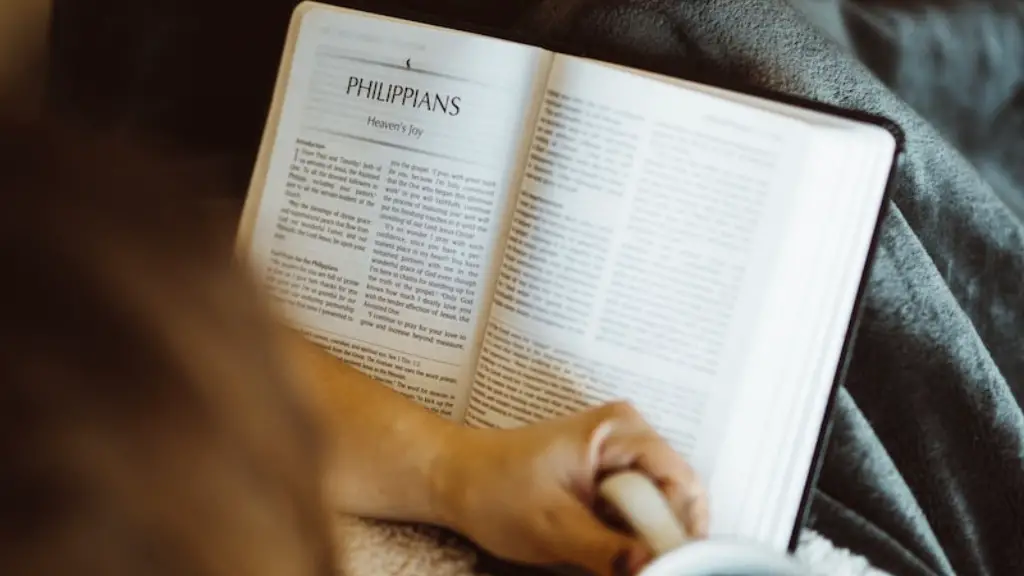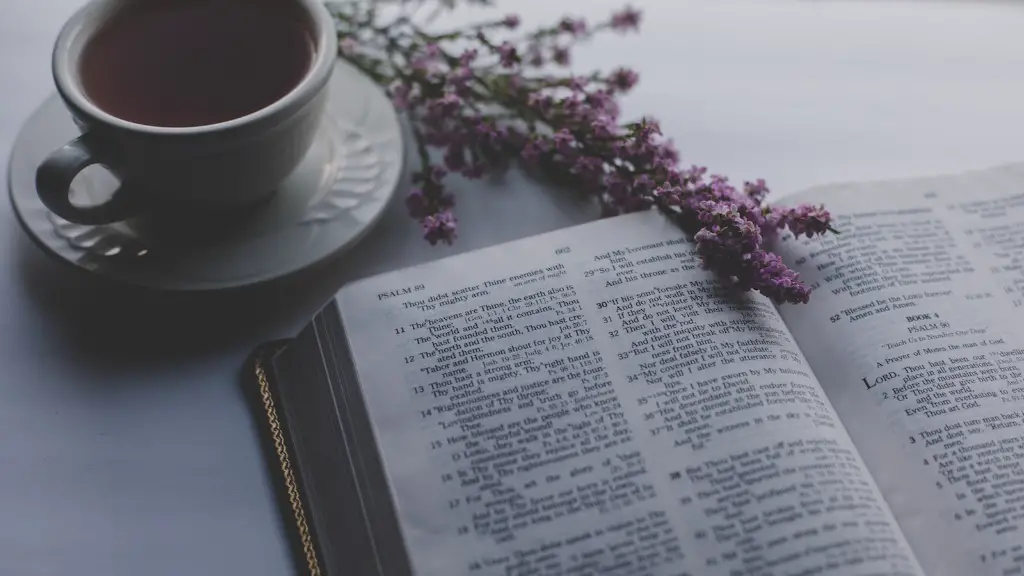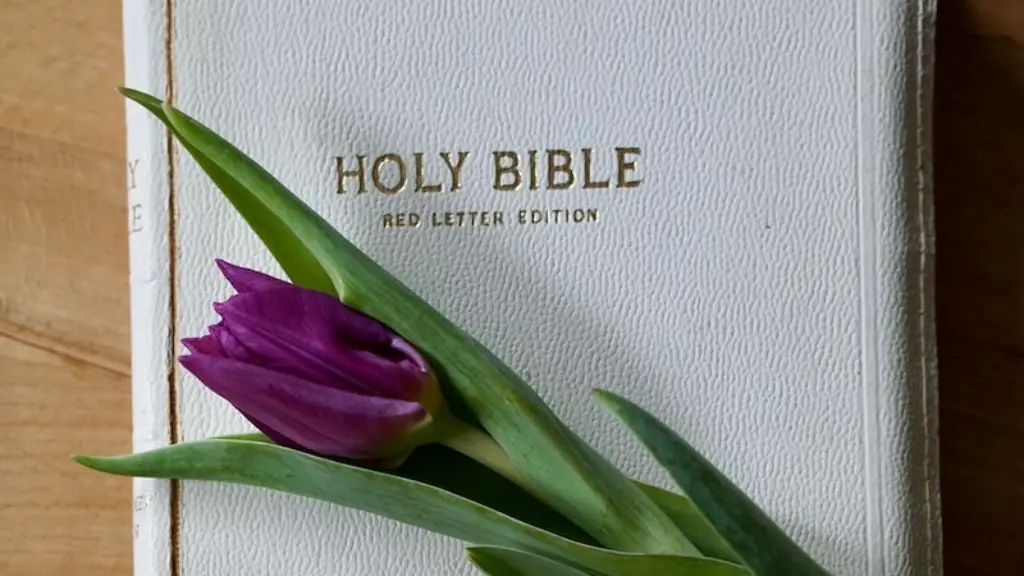Halloween has become an immensely popular holiday, celebrated by people of all ages in many different countries. At its heart, Halloween is a fun night of trick or treating, but is it something that followers of the Christian faith should get involved in? Many religious experts have weighed in on this question, and while they may not agree on all aspects of the debate, there’s no denying that the Bible does have a few things to say about this time of year.
In the book of Deuteronomy, the Lord speaks strongly against the practice of witchcraft and sorcery. The Bible specifically mentions “charmer,” “enchanter,” “sorcerer,” and “witch”; the implication is that these are practices the Lord frowns upon. This doesn’t mean that to fully observe the faith you have to stay away from Halloween; some experts interpret the warnings as a warning against idolatry and/or paganism. By taking part in trick-or-treating, therefore, some might assume that one is worshiping pagan gods.
Apart from the religious aspect, one has to take a look at the tradition of trick-or-treating itself. If we look closely at the origin of the practice, it is supposed to represent the tradition of “Souling”, a Christian custom where the poor would go from door to door asking for soul-cakes. In return, they would promise to say prayers for the homeowner’s deceased relatives. This means that, in theory, trick-or-treating is not an entirely pagan celebratory practice.
One of the key aspects of the Christian faith is charity and kindness. The Bible itself speaks at length about the importance of helping the needy, and this holiday can be an excellent opportunity to give back to those in need. Many churches celebrate Halloween in a religious context, with activities like pumpkin carving and costume contests, food drives, community outreach and more. As such, it’s possible to observe the faith while still engaging in the fun of Halloween.
While some people feel strongly about the inappropriateness of Halloween, many Christians today are not completely against it. For them, it is a matter of personal choice, as long as one remembers that no holiday can replace the importance of worshipping the Lord. Whether you celebrate Halloween or not, we can all agree that it is important to stay within one’s own faith.
What Should Parents Do?
Many parents struggle with the idea of their children celebrating Halloween, especially if their faith forbids them from doing so. The good news is that parents can still find ways to allow their children to go trick-or-treating in a way that is safe, fun and above all else, respects their religious beliefs. For starters, one can skip the traditional “trick-or-treating” experience and instead opt for attending fun, family-friendly Halloween events at a place of worship or in the community. Parents can also opt for a formal costume party, or the ever-popular annual harvest festival.
In addition to finding alternative events, parents can also spend time having meaningful conversations with their children about the culture of Halloween and how it might not adhere to their faith. It is important to teach kids about the importance of staying away from certain behaviors, like vandalism and vandalism-related activities, as well as from activities that might lead to harm to themselves or others. Parents can use Halloween as an opportunity to teach their children about the importance of morals, faith and respect for others.
Another option for parents is to find a way to bring a positive element to the holiday. For example, a family might organize a service project helping the needy. This can be a great way to teach children about the importance of helping their community and making a difference in the world. Ultimately, each family will make their own decisions, while considering their personal beliefs and values.
What Are Some Alternatives?
Thankfully, there are ways to celebrate this holiday and observe your faith at the same time. One popular alternative is to host a “Harvest Festival” which is a kid-friendly party that focuses on the fall season and its bounty of yummy treats. This kind of event is generally free of any pagan or demonic symbolism and can be held either indoors or outdoors. There can be all sorts of traditional fall activities like apple bobbing, a costume parade, and pumpkin decorating. In addition to all the fun, these festivals are a great opportunity for Christian families to come together and enjoy each other’s company.
Another option is to have a costume party! Rather than going out trick-or-treating, children can attend their own party with friends and family. They can dress in costumes and have fun, without any of the fear associated with Halloween. This can be a simple event or a more extravagant affair, depending on the family’s wishes. In any case, it’s an excellent alternative for Christian families who want to celebrate Halloween in a religiously respectful way.
Finally, each family can determine what works best for them. A family might choose to simply spend the night at home playing games or watching a movie. Or, they may join with other Christian families to attend a Halloween-themed event at a place of worship. The important thing to remember is that, whatever you do, it should be in a way that is respectful of your faith.
What Should I Wear?
When it comes to deciding what to wear for Halloween, the key is to stay away from costumes that could be considered offensive to the Christian faith. For example, dressing up as a witch or a demon could be seen as blasphemous and should be avoided at all cost. In the same vein, costumes with graphic violence, occult symbols and sexual innuendos are also not recommended.
That said, there are still plenty of costumes available that are harmless and fun. A popular option is to dress up as one of the characters or figures in the Bible – like a prophet, angel, or even Jesus himself. With a bit of creativity, children can dress up as a shepherd, a wise man and other characters. Alternatively, one might choose a costume that simply captures the spirit of the holiday and its fall-themed atmosphere without going overboard.
Ultimately, the Bible does not have a clear stance on Halloween, so it is up to each person to decide for themselves how to handle this holiday. One thing is for sure, though: as Christians we should always strive to honor our faith as we celebrate.
What Is The Church’s Role?
The Church is an important part of the Christian tradition, and the way they handle Halloween should be considered carefully. Many Churches view the holiday as an opportunity to celebrate the Advent season and hold events filled with fellowship, food, and fun. As an alternative, some churches organize special Halloween events that distance themselves from the darker connotations of Halloween by embracing the Christian mission of public service.
Some churches offer special events that involve decorating the church, having popcorn and storytelling, painting pumpkins, and so on. Other activities that many churches offer include Bible talks, special musical performances and movie screenings. Church-organized trick-or-treating in the local community is also a popular activity. This can be a great way to bring members of the community together and remind them of the importance of faith in the lives of Christians.
The church also has an important role in teaching their members about what the Bible has to say about celebrating Halloween. In addition to sharing God-centered messages during their service, the church can also provide guidance in a private setting for those who are uncertain about whether or not to participate in the holiday. This unique role that the church play allows them to offer an alternative to traditional Halloween activities and provide a spiritual safe space for the community.
Conclusion
Whether one chooses to celebrate Halloween or not, it’s important to remember that the teachings of the Bible are the only true measure of right or wrong. Each person has the freedom to make their own decisions on how to handle this holiday, but it’s important to always keep one’s faith in mind. Ultimately, one has to remember that no holiday can ever take precedence over one’s faith.




